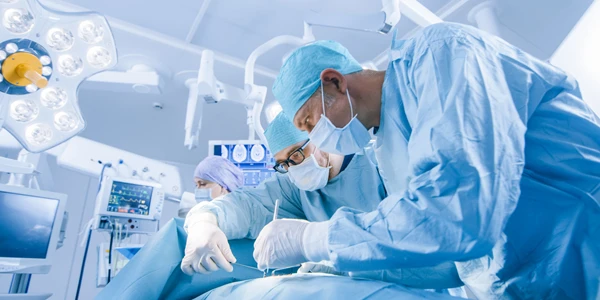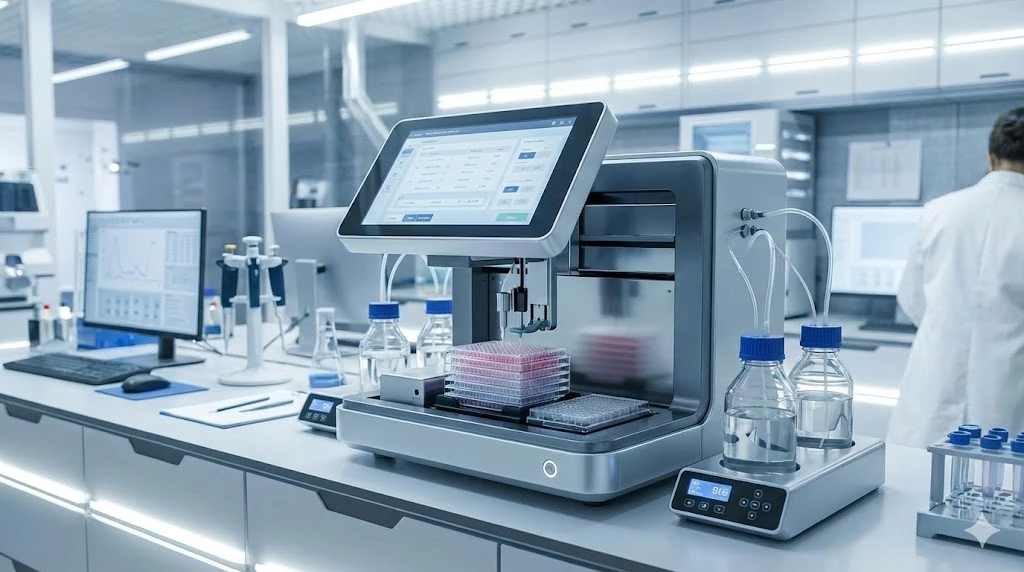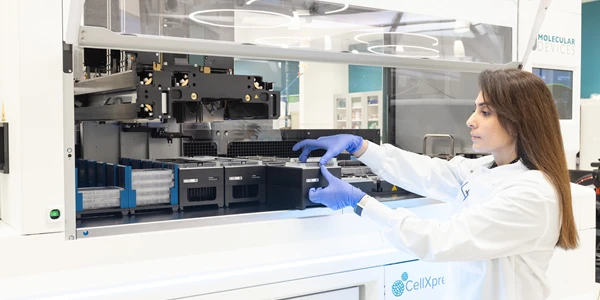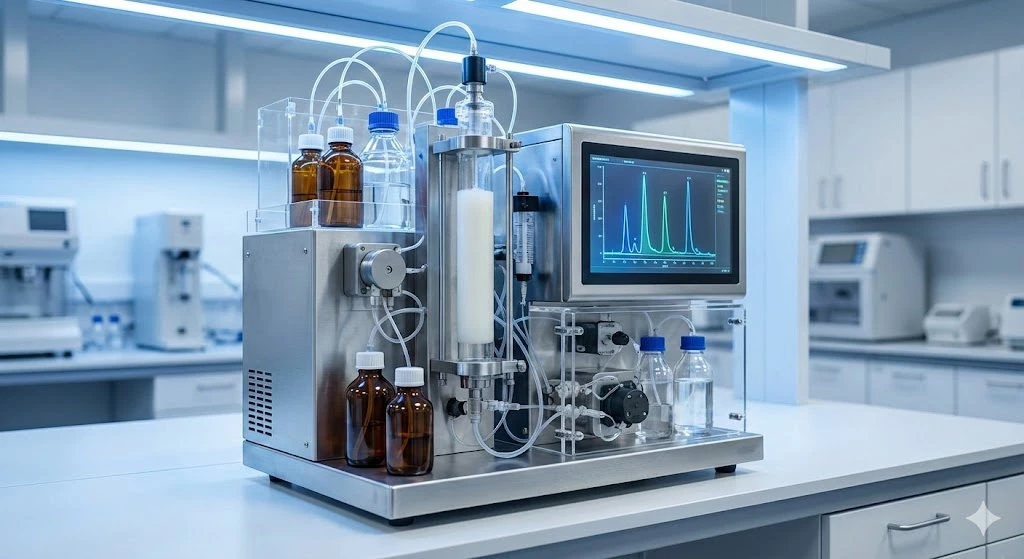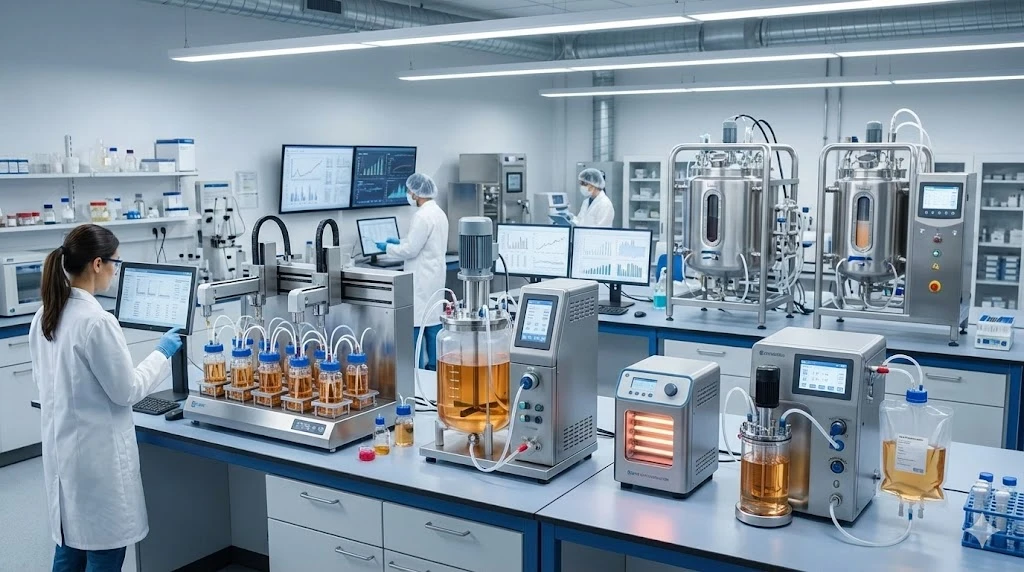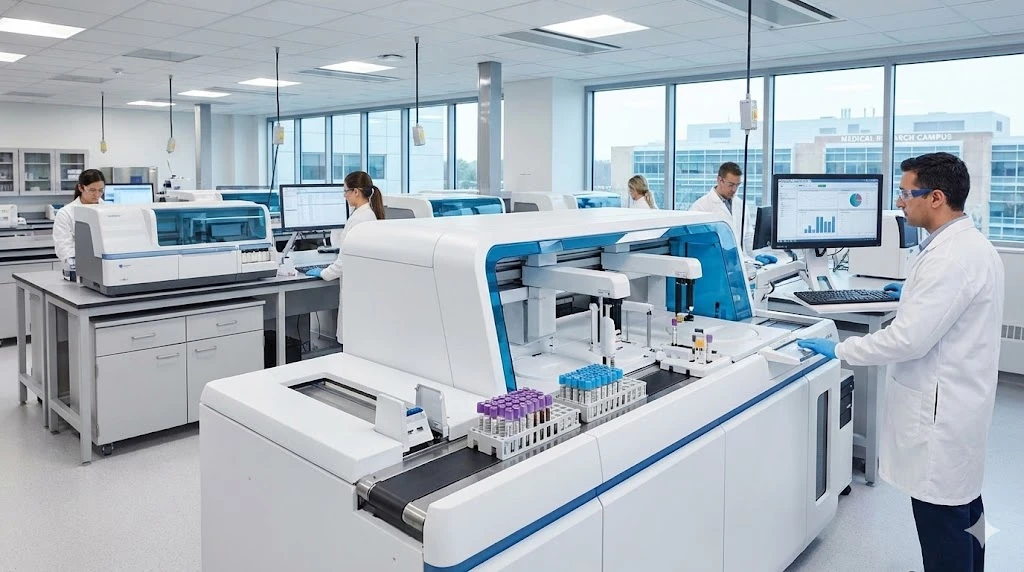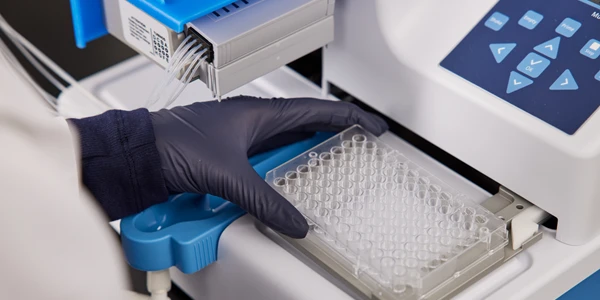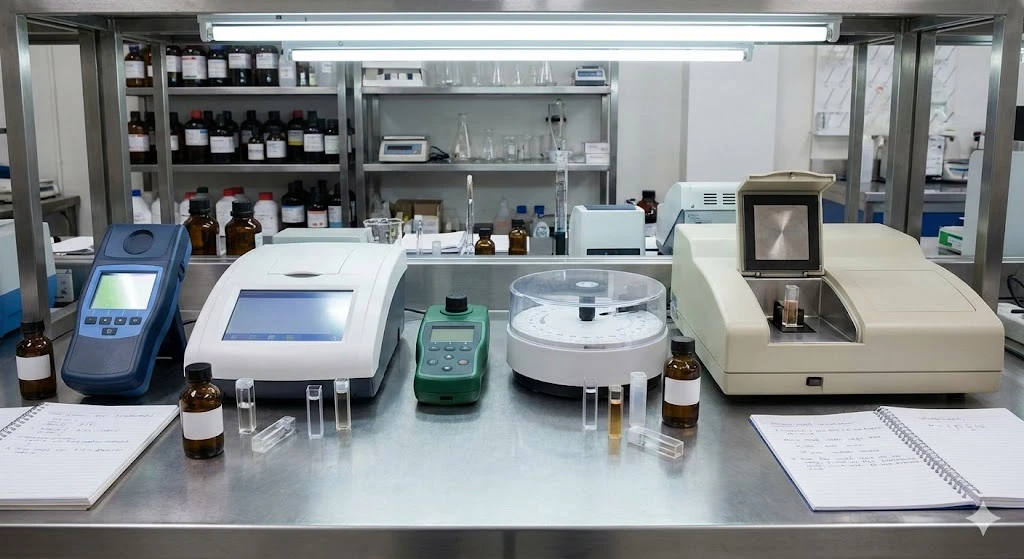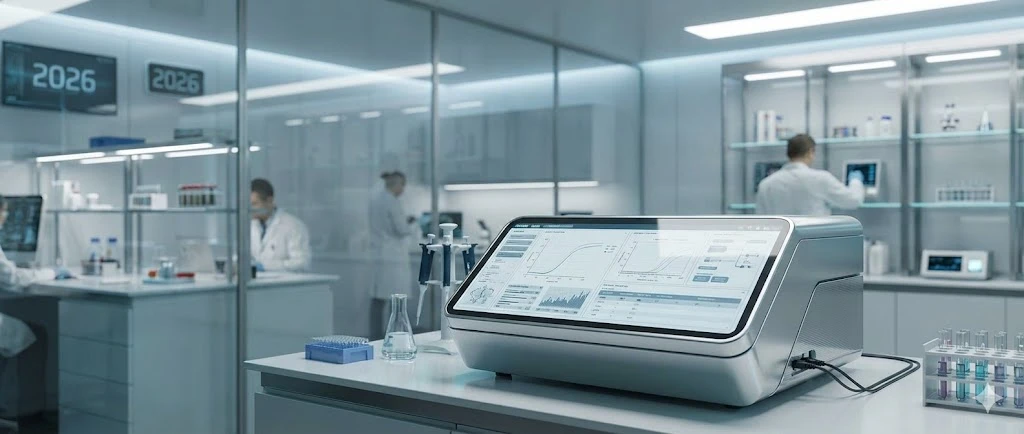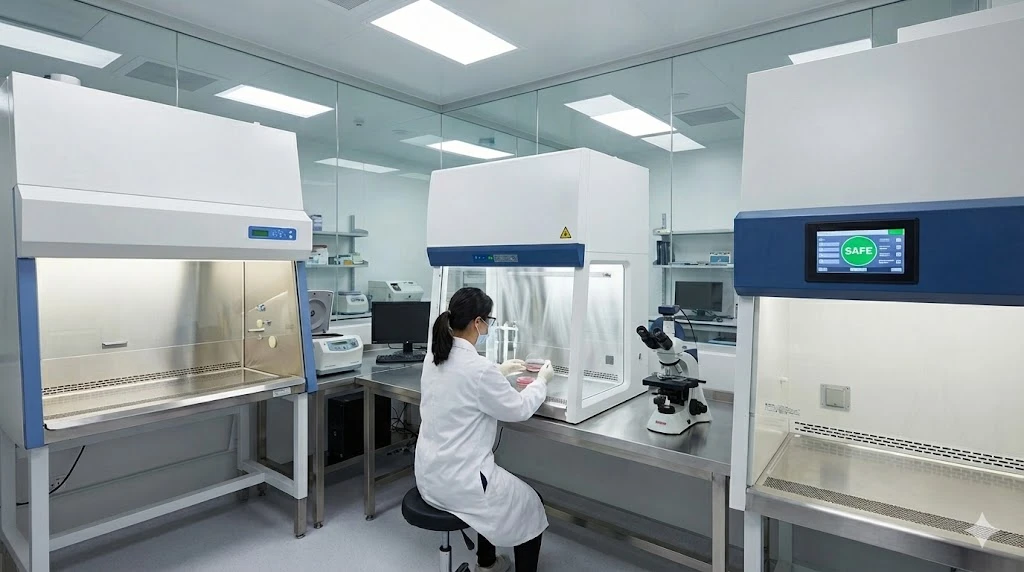The Best Autoclaves and Sterilizers of 2026
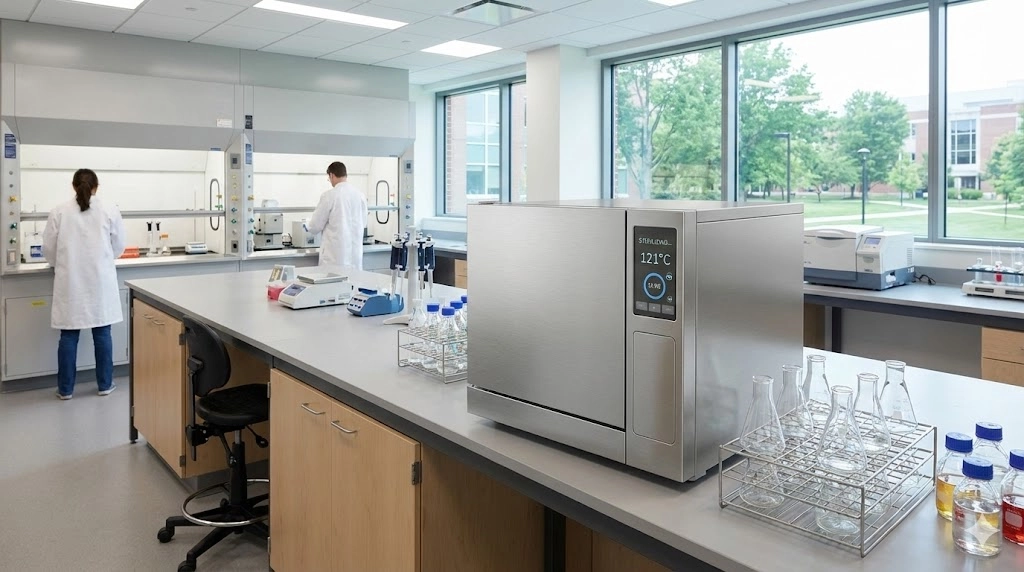
Selecting the right decontamination equipment is critical for maintaining research integrity and safety standards in modern facilities, making the search for the best autoclaves and sterilizers of 2026 a priority for lab managers. Dependable sterilization cycles ensure that culture media, waste, and glassware remain contaminant-free, directly influencing the reproducibility of experimental results. This review evaluates top-tier models based on throughput, cycle speed, energy efficiency, and programmable versatility to assist laboratories in making informed procurement decisions.
Quick Summary
Best Overall High-Capacity: Steris AMSCO Evolution Floor Loader — Maximizes throughput with high-volume cart loading and water-saving technology.
Best For Speed (Small Batch): Enbio S (2025 Model) — Offers ultra-fast Class B cycles, ideal for rapid instrument turnover.
Best For Space Efficiency: Yamato SN510C — A top-loading vertical design that saves floor space while offering generous capacity.
Most Versatile Benchtop: Priorclave B60-SMART — Features research-grade programmable controls in a compact cylindrical frame.
Best Laboratory Research Unit: Tuttnauer 5596 Compact Series — Delivers industrial-grade performance and custom cycles in a research-friendly footprint.
Enbio S (2025 Model) – Enbio Group
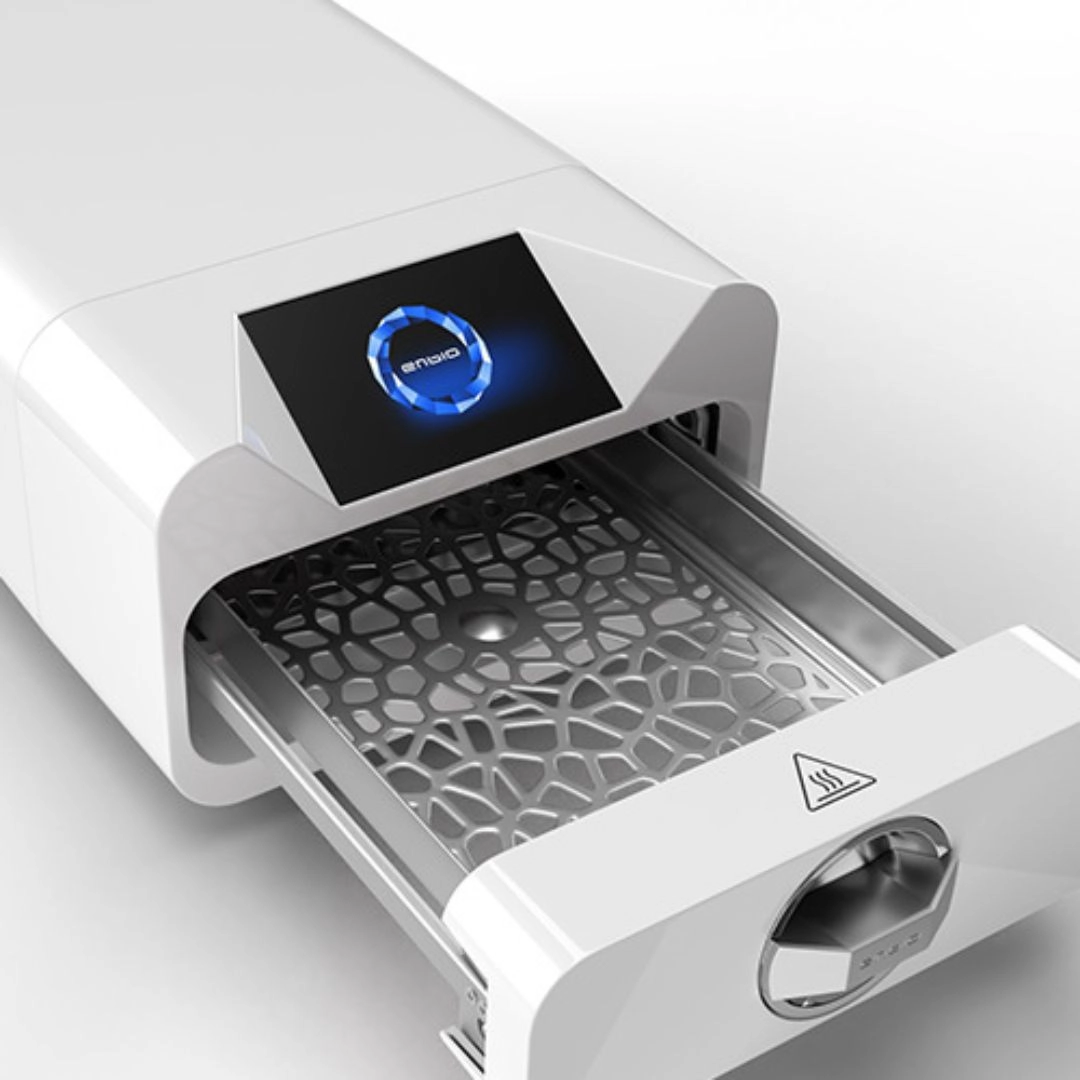
Price Range: $2,500 – $3,800 Best For: Speed Primary Category: Best For Speed / Throughput
Key Specs
Chamber Volume: 2.7 Liters (compact)
Cycle Time: FAST Cycle ~7 minutes; Class B ~15 minutes
Pressure: Up to 2.1 Bar
Dimensions: 56 x 27 x 15 cm
Performance & Applications The Enbio S (2025 Model) stands out for its capability to complete sterilization cycles significantly faster than traditional gravity-displacement units. This Class B sterilizer utilizes a pre-vacuum method to ensure steam penetration even in hollow instruments, making it highly effective for labs requiring rapid turnover of small tools or immediate sterilization of singular items. Its compact design allows it to fit on crowded benchtops without displacing other critical equipment. While it lacks the volume for large media bottles, its speed makes it indispensable for facilities that cannot afford downtime between instrument sets.
AMSCO Evolution Floor Loader – STERIS
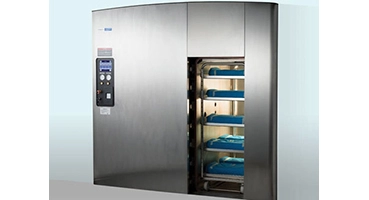
Price Range: $45,000 – $75,000+ (highly variable by configuration) Best For: High-Volume Processing Primary Category: Best High-End Option
Key Specs
Chamber Capacity: Processes up to twenty-five 25lb trays per cycle
Door Configuration: Single or Double (pass-through)
Sustainability: STERI-Green Plus water conservation system
Control: Touchscreen with ConnectAssure technology
Performance & Applications The AMSCO Evolution series represents the pinnacle of high-throughput sterilization for large research facilities and vivariums. This floor-loading unit is designed to handle heavy carts filled with cages, waste, or large volumes of media, streamlining workflow by eliminating the need for manual transfer of heavy loads. The inclusion of the STERI-Green Plus system drastically reduces water consumption, addressing sustainability goals common in modern institutional builds. Its programmable cycles allow for precise control over temperature ramps and dwell times, ensuring compliance with strict GLP (Good Laboratory Practice) standards.
SN510C – Yamato Scientific
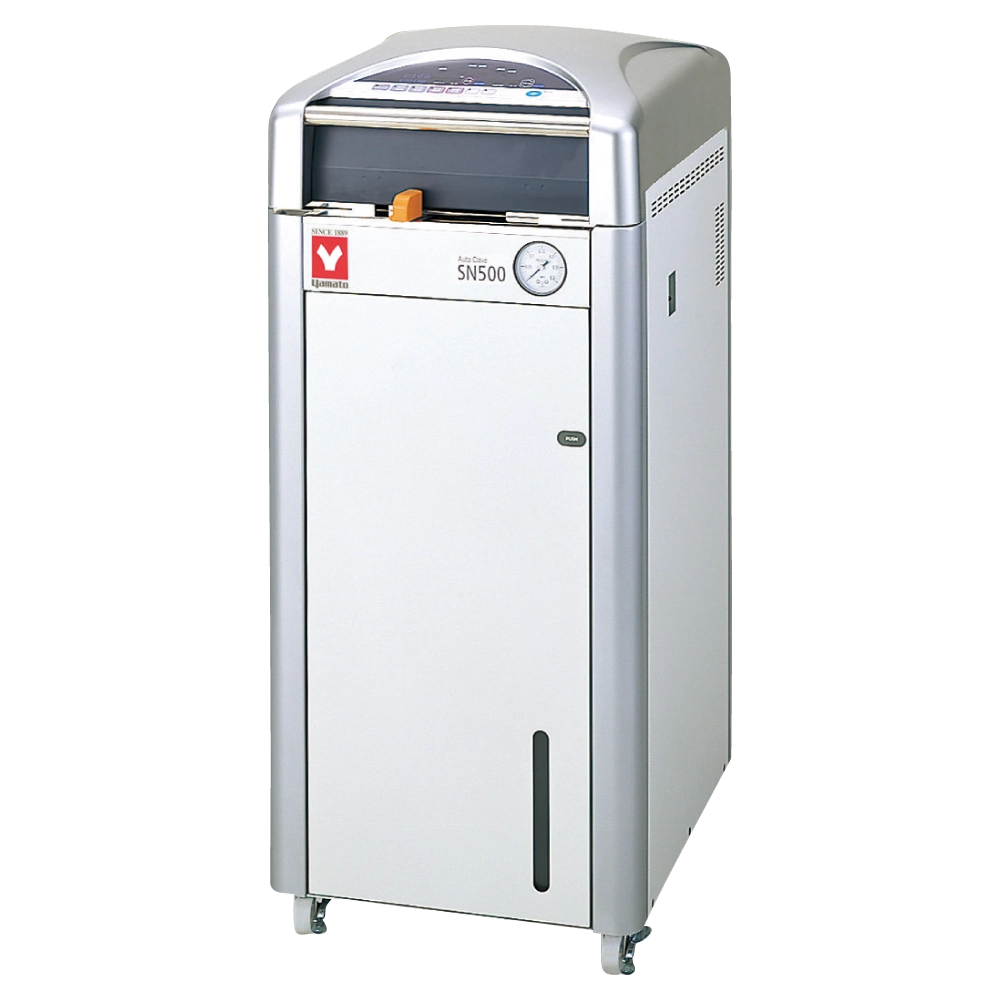
Price Range: $10,500 – $12,000 Best For: Vertical Loading / Space Saving Primary Category: Most Versatile (Form Factor)
Key Specs
Chamber Volume: 47 Liters
Max Temperature: 135°C
Cooling: Dual cooling fans for rapid post-cycle access
Safety: Lid interlock and self-diagnostic functions
Performance & Applications Top-loading autoclaves like the Yamato SN510C are favored in microbiology laboratories where floor space is at a premium. The vertical chamber design accommodates tall flasks and fermenters that often struggle to fit in similarly sized front-loading benchtop units. The SN510C distinguishes itself with an integrated cooling fan system that significantly reduces the waiting time after a cycle completes, allowing researchers to retrieve media safely and quickly. This model excels in media preparation and liquid sterilization, where boil-over risk is minimized by the deep vertical chamber.
Priorclave B60-SMART – Priorclave
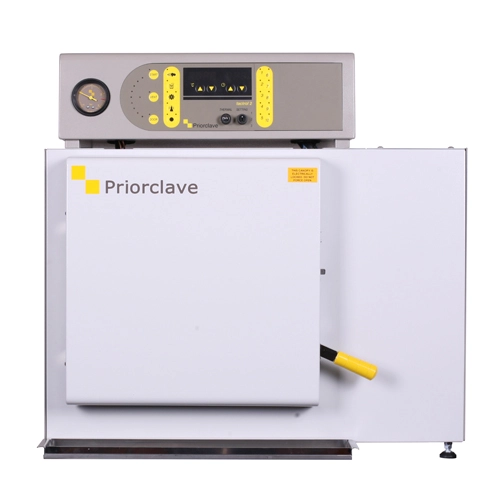
Price Range: $12,000 – $16,000 Best For: Complex Research Cycles Primary Category: Best Overall Benchtop
Key Specs
Chamber Volume: 60 Liters
Chamber Shape: Cylindrical (efficient steam circulation)
Controller: Tactrol® 2 Programmable System
Coating: Biomaster® Antimicrobial Surfaces
Performance & Applications Priorclave units are renowned for their durability and the sophistication of their control systems. The B60-SMART features the Tactrol® 2 controller, which permits users to program complex multi-step cycles, including media warming and delayed start functions. This level of control is essential for research labs dealing with sensitive biological agents or specific material testing protocols. The cylindrical chamber design is structurally robust and ensures optimal steam circulation, while the antimicrobial coating on external surfaces assists in maintaining a sterile laboratory environment. It effectively bridges the gap between simple tabletop units and large industrial sterilizers.
Tuttnauer 5596 Compact Series – Tuttnauer
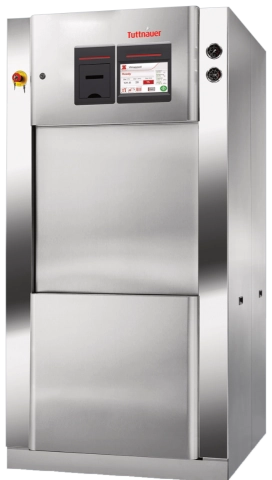
Price Range: $25,000 – $35,000 Best For: Industrial Performance in a Lab Footprint Primary Category: Best Overall (Research Grade)
Key Specs
Chamber Volume: 250 Liters
Dimensions: 20” x 20” x 38” chamber
Cycle Types: Gravity, Pre-vacuum, Liquid
Door: Automatic Vertical Sliding
Performance & Applications The Tuttnauer 5596 offers a "Goldilocks" solution for facilities that have outgrown benchtop models but lack the space for a massive floor loader. It delivers industrial-grade performance with a polished 316L stainless steel chamber and a highly efficient vacuum pump system for complete air removal. This model is particularly well-suited for core facilities serving multiple research groups, as it offers a diverse range of customizable programs to handle everything from solid waste and glassware to delicate liquids. Its narrow profile allows it to fit through standard doorways, simplifying installation in existing laboratories.
Comparison Table
Model | Best For | Key Features | Typical Price Range |
|---|---|---|---|
Enbio S (2025) | Speed / Small Batch | Class B vacuum, ~7 min cycles, Compact | $2,500 – $3,800 |
Steris AMSCO Evolution | High-Volume / Eco | Floor loader, STERI-Green water saving, Cart compatible | $45,000 – $75,000+ |
Yamato SN510C | Space Saving | Top-loading, Active cooling fans, Mobile base | $10,500 – $12,000 |
Priorclave B60-SMART | Complex Research | Tactrol® 2 controls, Cylindrical chamber, Antimicrobial surface | $12,000 – $16,000 |
Tuttnauer 5596 | Mid-Size Research | 250L capacity, Vertical sliding door, Narrow footprint | $25,000 – $35,000 |
Conclusion: Choosing the Best Autoclaves and Sterilizers of 2026
Identifying the best autoclaves and sterilizers of 2026 requires balancing capacity needs with available floor space and utility requirements. While the Steris AMSCO Evolution dominates high-throughput environments, the Enbio S (2025 Model) offers unmatched speed for small-batch applications. For general laboratory research, the reliability of the Yamato SN series and the programmable precision of the Priorclave B60-SMART provide versatile solutions that safeguard experimental validity. Investing in these modern systems ensures compliance, efficiency, and safety for the year ahead.
This article was created with the assistance of Generative AI and has undergone editorial review before publishing.
